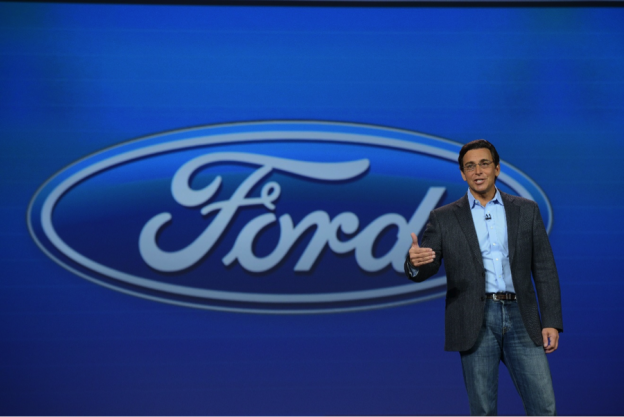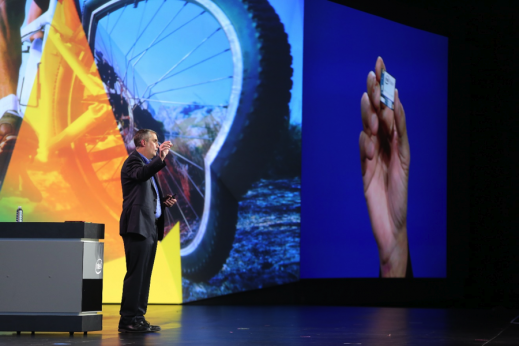Summary:
HCP’s Managing Director Asia Pacific Vanessa Moriel attended the 2015 Consumer Electronic Show (CES) and the 2015 Consumer Telematics Show (CTS) in Las Vegas. Both events have become important global meetings for top automotive companies to showcase their newest technological breakthrough to a wider public as the industry as a while increasingly embraces self-driving cars, assisted driving, sensor technology, telematics and infotainment systems, and other iterations of the connected automobile.
Release:
This year’s Consumer Electronic Show (CES), which took place January 6 through 9, and the Consumer Telematics Show (CTS), which took place on January 5, might one day be seen as turning points for the automotive industry. Global automotive executives of all stripes were in attendance to showcase the latest in self-driving cars, assisted driving, sensor technology, telematics and infotainment systems, and other iterations of the connected automobile. Human Capital Partner’s (HCP) Managing Director Asia Pacific Vanessa Moriel attended both shows to keep abreast of industry trends and connect with the people making the connected car.
“Cars are increasingly becoming electronic devices that are connected to the web, like our mobile phones and computers,” noted HCP’s Vanessa Moriel. “Technology companies are moving into the automotive market and automotive companies are moving into the tech market. This has created a demand for forward looking technologically-savvy executives who are able to bridge the divide between these industries.”
The automotive sector was well represented at the 2015 CES as more than 10 carmakers were present at the show. Headlining this representation were keynote addresses by Dieter Zetsche, Chairman of the Board of Management and Head of Mercedes-Benz Cars, as well as Mark Fields, President and CEO of Ford Motor Co.
Dr. Zetsche discussed autonomous vehicle technology and its impact on society, mobility and environment. In addition to his insights on the future of Daimler Intelligence Drive, Dr. Zetsche’s 2015 CES keynote also featured the world-debut of the F 015 self-driving car concept.
Meanwhile, Mr. Fields announced Ford’s new Smart Mobility plan, which aims to solve global transportation challenges. The plan will leverage today’s connectivity, mobility and big data to operate 25 experiments around the world. Through Ford’s open source hardware and software, OpenXC™, developers will be able to help Ford create solutions that provide a better customer experience, more flexible user-ship models and social collaboration.
Fields also unveiled Ford’s plans to develop the next-generation of fully autonomous cars. The company is currently testing Fusion Hybrid, a fully autonomous car that uses existing technology from Ford’s semi-autonomous cars and includes LiDAR sensors to sense objects and advanced algorithms to help predict vehicle and pedestrian traffic.
Other automotive executives taking to the stage at CES included: Phil Abram, Chief Infotainment Office for General Motors; Werner Struth, Chaiman with Robert Bosch LLC; and Dr. Werner Huber, Head of Driver Assistance and Perception with BMW Group Research and Technology.
In smaller panels: Andreas Mai, Director Smart Connected Vehicle, Cisco; Richard Steinberg, CEO, DriveNow (USA), DriveNow, BMW Car Sharing LLC; John Suh, Executive Director, Hyundai Ventures; and Brian Droessler, Vice President, Software & Connected Solutions, Continental Corporation spoke about transforming the future of personal mobility.
Don Butler, Executive Director, Ford Motor Company; Tim Nixon, CTO, GM Connected Consumer; Tom Gebhardt, President and COO, Panasonic; and Jeff Klei, President, Continental discussed the future of 4G technology. Peter Virk, Head of Connected Technologies and Apps, Jaguar Land Rover; Jim Fish, Chief Innovation Officer, Bosch Automotive Service Solutions; Ian Geller, Vice President of Business Development, Pandora; Jeff Owens, Chief Technology Officer, Delphi Automotive; and Michel Tombroff, CEO, SoftKinetic talked about the future of automotive technology from self-parking cars and gesture-controlled infotainment systems, to head-up displays that augment reality.
Automotive executives assembled at CES also discussed the challenges and opportunities of the connected car. Steve Schwinke, Director Advanced Development and Concepts, General Motors Corp; James Sherman, Technical Program Developer, SAE International; Dr. Anthony Cooprider, Senior Technical Leader Global Electrical and Electronic Systems, Ford Motor Company; Chris Cook, President, Mobile Electronics Group; David L. Strickland, Partner, Venable LLP; Sky Matthews, CTO, Internet of Things, IBM; Dan Murphy, Vice President of Telematics Solutions, VOXX Electronics Corporation; Jake Ward, Executive Director and Co-Founder, Application Developers Alliance; Danny Shapiro, Sr. Director, Automotive, NVIDIA; and Thilo Koslowski, Vice President and Automotive Practice Leader, Gartner Inc., discussed how the collection and analysis of newly available data creates an unprecedented understanding of consumer behaviors and preferences – allowing for new competitive opportunities to greatly enhance customer driving experience and brand value.
Another exciting trend on display at the show was the amount of interest in mobility shown by companies outside of sectors traditionally associated with the auto industry. These included telecoms, semiconductor companies, internet companies, insurance companies, electronic companies, and software companies.
CES saw the introduction of exciting new products such as Apple CarPlay and Google Android Auto, as both tech giants seek to gain a foothold in the growing automotive software space. The show also saw a company usually linked with virtual driving in games, Nvidia, release its Drive PX chip, a self-learning chip that will help drivers avoid accidents. Event participants were also treated to a slew of new telematics, wireless, connected and infotainment offerings by OEMs and suppliers alike.
All of these developments are being driven by the progress made on self-driving cars, and in the shorter-term, assisted driving. As cars are increasingly requiring less and less of our attention, carmakers are betting that we will want to be entertained or productive as we ride along. This automotive vision was futuristically displayed with the Mercedes-Benz F015 self-driving concept’s revolving lounge chairs and high-resolution touch-screen display presented in a keynote speech by Daimler CEO Dieter Zetsche. While the exact form the self-driving car will take is yet to be determined, the fact that it will eventually become a reality seems to have established itself as a truism at CES and CTS
Developments in telematics presented at CTS also hinted at the future changes coming to the automotive industry as a whole. The more than 500 automotive executive from the connected car community gathered for CTS explained how and why connected vehicles are transitioning to autonomous capabilities.
“With the progress that has been made in self-driving cars and connectivity over the past few years, telematics and infotainment systems have become a key area of differentiation and growth for automotive OEMs,” said Vanessa after the show. “This has resulted in a major scramble for talents. There is a real and growing demand for individuals with technical and management skills that are able to bridge the divide between the tech and the automotive sectors. This demand in only going to increase as the effects of these new technologies reverberates throughout the industry and companies have to reinvent themselves to stay competitive.”
Some of the notable speakers at the CTS included: Klas Bendrik, Group CIO (Chief Information Officer) & Vice President, Volvo Car Corporation; Dan Teeter, Director of Vehicle Connected Services, Nissan; Thilo Koslowski, Vice President – Automotive Vehicle ICT, Gartner; Anupam Malhotra, Senior Manager – Connected Vehicles, Audi; Henry Bzeih, Head of Connected Car/CTO, KIA; Charles Koch, Manager New Business Development, Honda; and Peter Virk, Head of Connected Technologies and Apps, Jaguar Land Rover.
Executives gathered for the CTS discussed the transformation of the industry, from one that focuses on automotive hardware, toward a software and services business with multiple revenue streams.
One such example is driver assessment and coaching, where drivers will get cheaper insurance in exchange for being monitored. These types of innovation could also allow risky drivers who are now uninsurable to obtain insurance. GM’s OnStar telematics already has a deal in place with Progressive to develop these types of systems. The coaching part of the equation has to do with real-time sensor detection. For example, Mercedes-Benz and others are now warning drowsy driver, cars provide lane departure warning, blind spot detection, and adaptive cruise control that help to enhance the driver’s skills.
However, with hurdles such as cyber security, regulatory approval, and the complexity of urban traffic that still need to be overcome, speakers at CTS noted that the fully autonomous car still won’t be on the road for a number of years. But features such as adaptive cruise control, lane departure warning, lane keep assist and blind spot detection are already giving motorists a hands-on experience with semi-autonomous cars.
Transformations with the autonomous car are bound to have major repercussions on the automotive industry as a whole. It is likely that business models will have to change, and these changes will require forward-looking executives who are able to reinvent an industry that has been in business for more than a century.
“These transformations will require new automotive leaders who are more tech-savvy, as well as technology executives who understand the automotive sector,” said Vanessa Moriel. “The growing importance of infotainment, telematics systems, connected technologies and self-driving cars are also increasing the need for localization in foreign markets such as China and India. With its in-depth understanding of the Asian automotive market, Human Capital Partners is well positioned to partner with companies and help them build the right team to tackle this new era in automotive history.”
Editors Notes:
Human Capital Partners is a retained executive search consultancy & talent management consultancy that specializes in the global automotive sector. We place high quality candidates in CEO and top management positions through succession planning, market scanning and pipeline management to ensure a smooth transition for both our clients and candidates. Our passion for the automotive industry and our unique approach ensures that we fully understand your business. This results in any potential risks being mitigated or carefully managed which ultimately means successful placements and satisfied clients.
PR Contact: Vanessa Moriel, Managing Director Asia (Contact Vanessa)
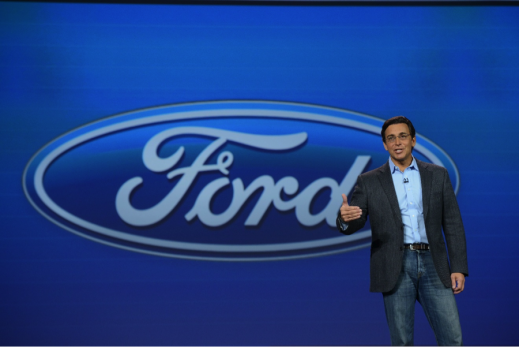
Ford Motor Company President and CEO Mark Fields shared his vision for smart mobility, open source development, and autonomous driving during his keynote address.
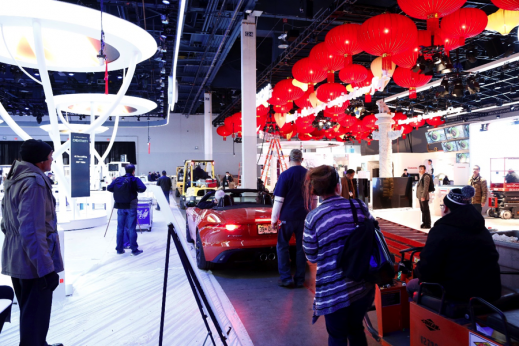
Exhibitors setting up shop, including a Jaguar F-Type showcased by an Australian startup called Seeing Machines which uses an in-dashboard camera using facial recognition technology to determine if a driver is too tired or too distracted to be behind the wheel. The technology measures everything from head position to blink rate, and if it thinks you’re not focused enough, it will alert you before an accident occurs.
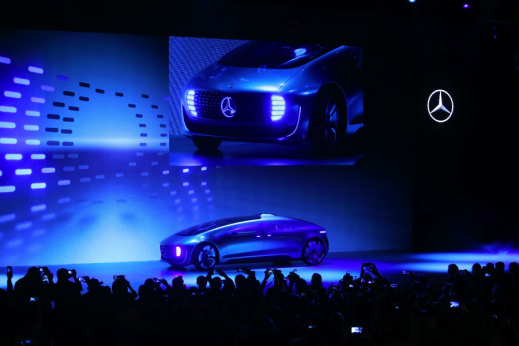
The F 015 Mercedes-Benz self-driving new concept car was revealed by Dieter Zetsche, Chairman of the Board of Management and Head of Mercedes-Benz Cars.
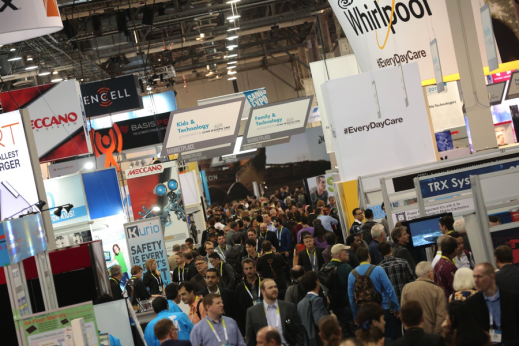
CES attracted over 160,000 attendees, with 3,673 exhibitors and more than twenty thousand new product announcements
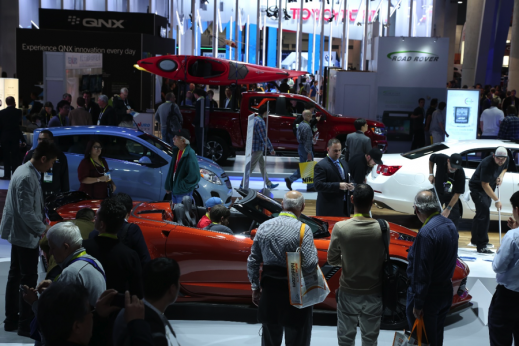
More than 10 automakers along with a myriad of suppliers and technology companies looking to get into the auto industry were present at the 2015 CES.
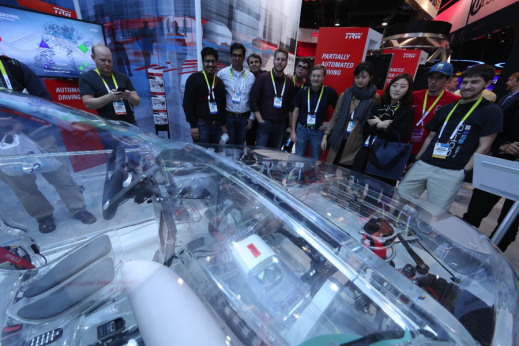
TRW exhibited its automated driving technology at the 2015 CES. Tolga Oal, vice president, TRW Global Electronics highlighted the expansion of its electronics group – and in particular the growth of its dedicated Automated Vehicle team. Meanwhile, it also announced that PSA selected the Company as its driver assist system (DAS) partner beginning with the launch of its next generation radar (AC1000) and camera (S-Cam 3) sensor technologies, either individually or in ‘data fusion’ systems, across the Peugeot, Citroen and DS vehicle ranges, with production starting in 2017
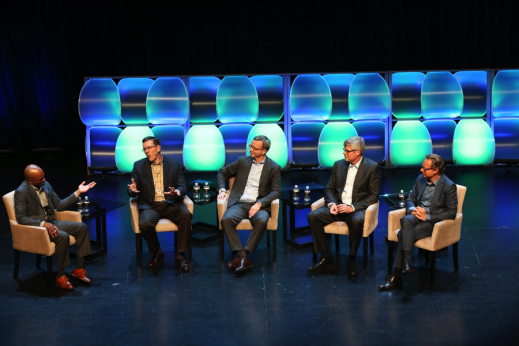
Left to right: Jon Fortt, Co-host, Squawk Alley, CNBC; Phil Abram, Chief Infotainment Officer, General Motors; Jan Brockmann, CTO and SVP, Electrolux; Steve Mollenkopf, CEO, Qualcomm Inc; and Jeroen Tas, CEO, Healthcare Informatics, Solutions and Services, Philips, take part in a panel discussion regarding How Mobile is Fundamentally Changing Our World at the 2015 International CES.


